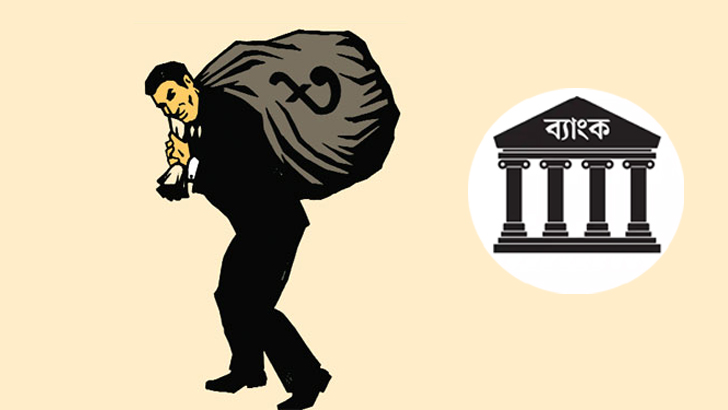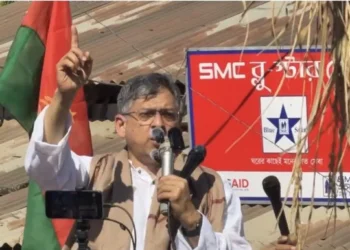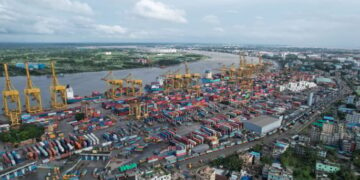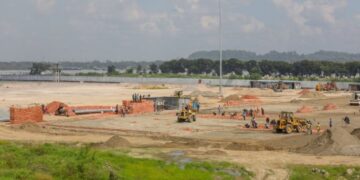Bangladesh’s fragile financial sector is suffering from looting, poor governance, and inflation. Discover the core problems and their impact and how reforms can restore trust and stability.
Bangladesh’s economy is currently at a critical juncture. The political uncertainty surrounding the national elections, inflation control through strict monetary policy, and the instability in global trade are major challenges for the country’s economy.
However, the biggest problem lies in the banking sector, which has been severely weakened by widespread looting and corruption over the past few years. This has led to a collapse of the financial system, making life even more difficult for the general public.
The World Bank’s recent ‘Bangladesh Development Update’ report sheds light on these issues, indicating that Bangladesh is heading into a period of economic distress where growth seems uncertain. This situation is largely due to political discord, corruption in the banking sector, and systemic weaknesses. However, there are possible ways out of this crisis, which can help restore the country’s economic structure.
Types of Looting
Looting in the banking sector has escalated recently. Events like loan defaults, illegal transactions, and money laundering are the primary causes of the sector’s weakness. These corrupt practices are often carried out by those in powerful political or economic positions. Let’s examine some specific forms of this looting:
1. Bank Looting:
Looting in Bangladesh’s banking sector is largely carried out through political power and influence. Often, powerful individuals take loans from banks and fail to repay them, or misuse bank funds for their own purposes. This causes significant damage to the country’s financial state, and ordinary citizens bear the brunt of this corruption.
2. Loan Defaults:
Loan defaults have become a common occurrence in Bangladesh. Those in power often take loans and fail to repay them, leading to severe consequences for the banking sector. Large corporate entities and political organizations are also often able to avoid paying back loans, causing substantial damage to the country’s economy.
3. Illegal Transactions:
Illegal transactions have also contributed to the growing problems in the banking sector. These transactions cause chaos in the banking system, as money is laundered and transferred abroad, depriving the country of essential funds needed for development.
4. Money Laundering:
Money laundering is another significant issue in Bangladesh’s banking sector. Funds are siphoned out of the country through illegal means, depriving domestic development projects of the resources they need. This exacerbates the economic crisis and creates further instability.
Who Is to Blame for Fragile Financial Sector
The primary culprits behind this corruption in the banking sector are those with political power and corrupt officials. It’s not just individuals, but also systemic weaknesses that contribute to this situation.
Those responsible for ensuring economic stability in the country have often undermined the banking system for political or personal gain. As a result, the public has lost faith in the banking sector, and the overall economy has suffered.
Impacts
The looting in Bangladesh’s banking sector has far-reaching consequences for the entire economy. These actions have negatively affected investment, inflation, employment, and the standard of living for ordinary people. Specifically:
1. Inflation:
Due to corruption in the banking sector and economic mismanagement, inflation has been on the rise. High inflation means that ordinary citizens are spending a larger portion of their income on daily essentials. This has created immense financial pressure on the public, and the overall economy is suffering as a result.
2. Reduction in Investment:
Because of the instability in the banking sector and its corruption, investors are now less willing to invest in Bangladesh. With a decline in business investments, the economy is struggling to grow, and job creation has slowed down. Access to bank loans for new businesses is also becoming increasingly difficult, hindering the overall development of the country.
Read More: 12 Years of Rana Plaza Tragedy in Bangladesh
3. Loss of Public Trust:
Due to corruption, public trust in the banking sector has significantly decreased. People no longer feel that their savings are safe within the system, and this has led to a loss of confidence in the financial structure. As a result, savings are not being invested or utilized to fuel economic growth, and public faith in the system is at an all-time low.
Examples
Recent scandals such as banking fraud and manipulation in the stock market have caused widespread anxiety among the public. These incidents have not only led to financial losses but have also eroded the trust of the people.
The country’s economy is now under severe strain due to these corrupt practices, and ordinary citizens are feeling the effects of this situation. Such events have done more than harm the financial system—they have also created mental and emotional stress for the people.
Ways to Recover the Financial Sector
Now is the time to take swift action to address the weaknesses in Bangladesh’s banking sector. According to the World Bank and other economic organizations, there are several critical steps that need to be taken to restore the banking sector to healthy economy sector.
1. Policy Reform:
There needs to be a complete overhaul of the banking sector’s policies and framework. Strong measures against corruption must be implemented, and transparency must be established in the system.
2. Transparency:
Ensuring transparency within the banking sector is crucial. This will help the public regain trust in the system and feel confident that their savings are secure. Transparent practices will also reduce the chances of illegal transactions and fraud.
3. Use of Technology:
Modern technology should be used to improve security and transaction management in the banking sector. This will help reduce illegal transactions and corruption, making the system more reliable.
4. Strict Action Against Corruption:
Strict anti-corruption laws need to be enacted and enforced. In addition, establishing good governance practices within the banking sector will help prevent systemic weaknesses and ensure the stability of the financial system.
5. Bank Regulation and Monitoring:
International best practices must be followed in bank regulation and monitoring. This will improve accountability and trust in the banking sector. Ensuring the independence of the central bank is also a key part of strengthening the financial system.
Conclusion
Looting and corruption in Bangladesh’s banking sector have put the country’s economy in a state of crisis. However, with the right steps taken, it is possible to recover the financial structure. Political uncertainty, looting in banks and systemic corruption can all be addressed with appropriate measures.
It is leading to a stronger and more stable economy. According to the World Bank’s recommendations, if these actions are taken, Bangladesh could see its GDP growth rebound to 4.9% in the coming years, restoring the country’s economic stability.

















